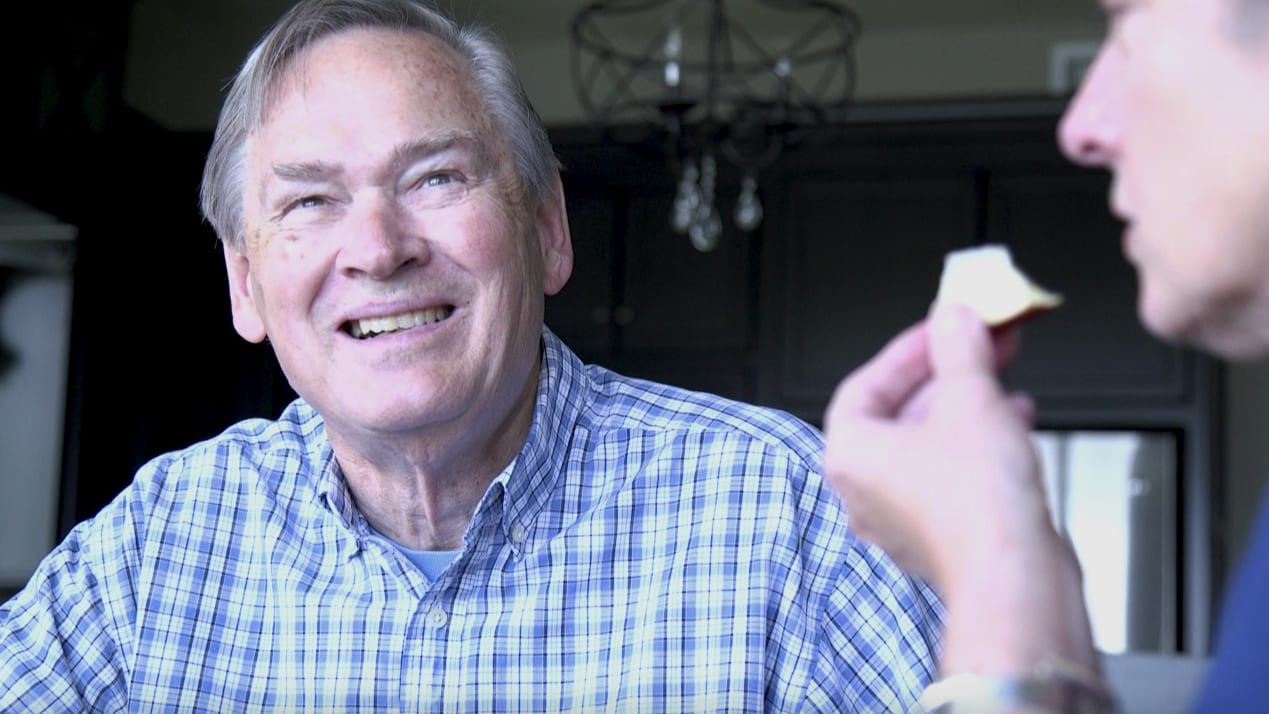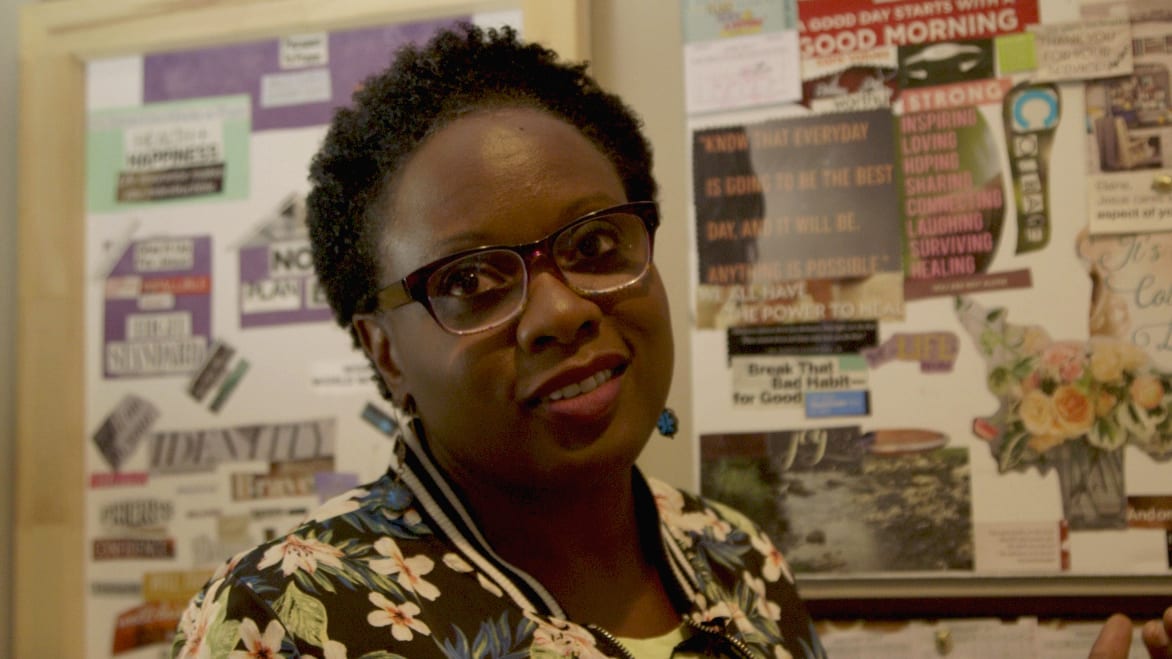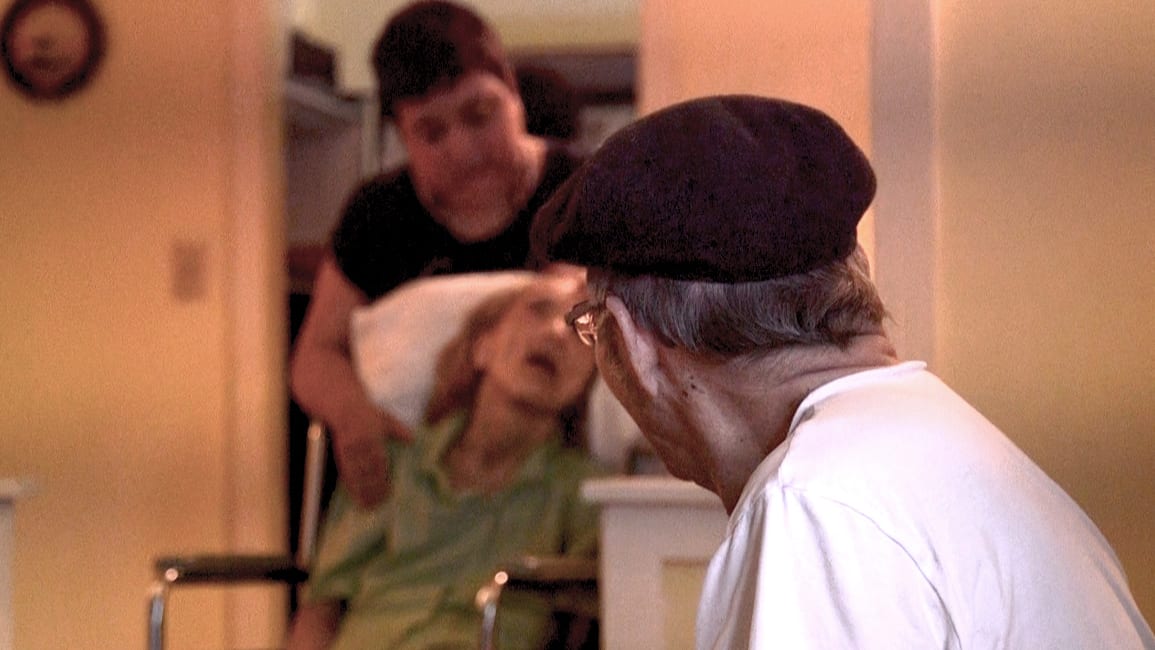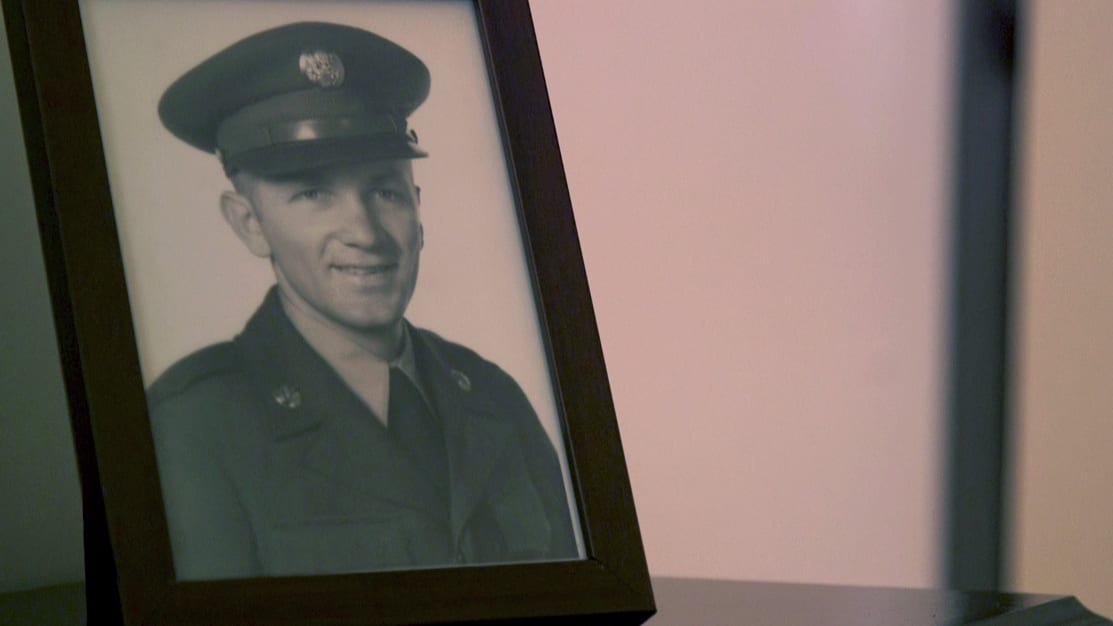The Caregiver’s Perspective on Alzheimer’s In Our Community
 Former Congressman Dennis Moore of Lenexa has been very open about his Alzheimer's disease diagnosis. His wife, Stephene, right, is one of many Alzheimer's caregivers in the metropolitan area. This video examines the Moore's and others' personal experiences with the disease. (AnnMarie Welser | Flatland)
Former Congressman Dennis Moore of Lenexa has been very open about his Alzheimer's disease diagnosis. His wife, Stephene, right, is one of many Alzheimer's caregivers in the metropolitan area. This video examines the Moore's and others' personal experiences with the disease. (AnnMarie Welser | Flatland)
Published July 20th, 2017 at 6:00 AM
When Elaine and Jose Belardo discovered he had Alzheimer’s disease, their lives seemed to stand still.
“Once you get the diagnosis, it’s destabilizing, you lose vision because everything is so dizzying,” Elaine said, “Once I got a new vision, I could orient myself for what could be done.”
In that instant, Elaine became not only Jose’s wife, but also his caregiver.
His early retirement was not in the plan, nor was the move to a new house that is more accessible for Jose.
“The disease doesn’t care who you were,” Elaine said. “It hits and it’s destructive.”
Change in Plans
Alzheimer’s also disregarded Maria Gibson’s dreams.
At 23, she moved with her parents from Ecuador to Kansas City, expecting a life filled with better opportunity. Then, Alzheimer’s afflicted both her parents.
“Sometimes I feel like I am a single mom with two children,” she said. Her mother also has Parkinson’s disease.
It is now 13 years later, and Gibson said there is one thing that sustains her.
“Without my faith,” she said, “being alone in this country, with these two children, I don’t know what I would do.”
Faith to the End
Married for more than 41 years, Russell and Helma Hawkins also had strong faith. Russell calmly accepted his 2010 diagnosis.
“Russ wasn’t afraid of what would happen to him,” Helma said. “Even those last two weeks, he was totally at peace.”
The doctor urged Russell, a United Methodist minister, to spread awareness by preaching “The Gospel of Alzheimer’s.” Russell followed doctor’s orders up until his death two months ago.
“I can’t imagine how it would be to go through a disease like this and not have, not only a personal faith, but the faith community,” Helma said.
The Disease
Alzheimer’s is the sixth leading cause of death in the U.S, according to the Centers for Disease Control and Prevention.
It is the most common form of dementia, according to the Alzheimer’s Association.
Symptoms gradually worsen over a number of years, ultimately robbing patients’ ability to carry on a conversation and respond to the world around them. Advanced-stage patients may also have unfounded suspicions about friends, family, and professional caregivers, according to the association.
In 2015, 15 million family members and friends provided 18.1 billion hours of unpaid care to those with Alzheimer’s and dementia.
There is presently no cure for Alzheimer’s, but treatment can slow the progression of the disease.
One of the facilities looking to find a cure for the disease is the University of Kansas Alzheimer’s Disease Center in Fairway, Kansas. It is one of 31 nationally designated centers through the National Institute on Aging.
“The more advanced science becomes, the more important early detection comes,” said Michelle Niedens, director of education, programs and public policy for the Alzheimer’s Association Heart of America Chapter. “We need to be on the lookout to diagnosis earlier.”
The chapter serves 66 counties in Kansas and Missouri, assisting more than 50,000 individuals and about 200,000 family members. The chapter offers information, education, training and support programs.
Niedens counsels grieving family members, drawing hope from the love shown by caregivers. “I never, in all these years, look at a family or a person that’s diagnosed as hopeless.”
AnnMarie Welser is a multimedia intern for Flatland. She is a senior studying convergence journalism at the University of Missouri — Columbia. AnnMarie is a Chicago native currently residing in Kansas City, you can reach her at awelser@kcpt.org
For more on Alzheimer’s disease and its impacts, tune into KCPT 19.1 on Sunday for a two-hour block of programming beginning at 1 p.m. The back-to-back shows are “Alzheimer’s: The Caregiver’s Perspective” and “Alzheimer’s: Every Minute Counts.” For more information, consult KCPT’s online program schedule.





